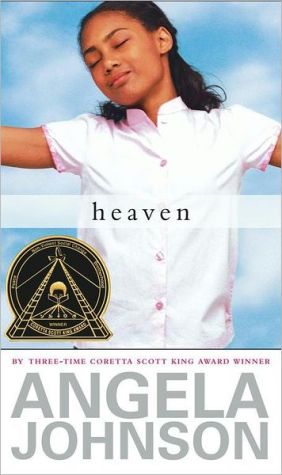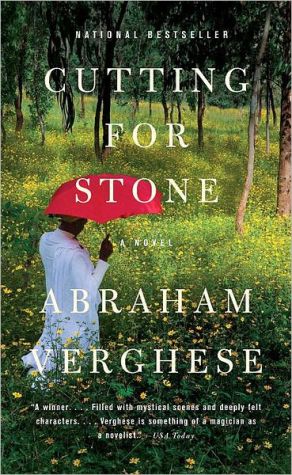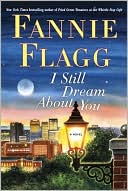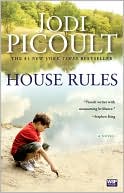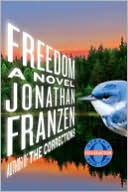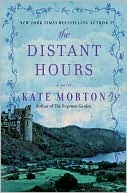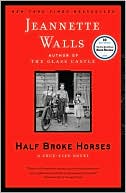Heaven
Marley has lived in Heaven since she was two years old, when her mother found a postcard postmarked HEAVEN, OH on a park bench and decided that was where she wanted to raise her family.\ And for twelve years, Marley's hometown has lived up to its name. She lives in a house by the river, has loving parents, a funny younger brother, good friends, and receives frequent letters from her mysterious Uncle Jack. Then one day a letter arrives form Alabama, and Marley's life is turned upside down....
Search in google:
Marley has lived in Heaven since she was two years old, when her mother found a postcard postmarked HEAVEN, OH on a park bench and decided that was where she wanted to raise her family. And for twelve years, Marley's hometown has lived up to its name. She lives in a house by the river, has loving parents, a funny younger brother, good friends, and receives frequent letters from her mysterious Uncle Jack. Then one day a letter arrives form Alabama, and Marley's life is turned upside down. Marley doesn't even know who she is anymore -- but where can she go for answers, when she's been deceived by the very people she should be able to trust the most?Publishers WeeklyAs in her Gone from Home, Johnson here explores the themes of what makes a place home and which people family. Fourteen-year-old Marley's tranquil life in Heaven, Ohio, turns hellish the day her family receives a letter from Alabama. The note (from the pastor of a church that was destroyed by arson) requests a replacement for Marley's baptismal record, and reveals that "Momma" and "Pops" are really Marley's aunt and uncle, and mysterious Jack (an alleged "uncle" with whom Marley has corresponded but doesn't remember) is her true father. In this montage of Marley's changing perceptions, Johnson presents fragments of the whole picture a little at a time: images of people, places (the Western Union building "1637" steps away from Marley's house) and artifacts (a box filled with love letters between her birth parents) gain significance as Marley begins to make sense of the past and integrate her perceptions into her new identity. The author's poetic metaphors describe a child grasping desperately for a hold on her reality ("It was one of those nights that started to go down before the sun did," she says of the evening the fateful letter arrives). The melding of flashbacks and present-day story line may be confusing initially, but readers who follow Marley's winding path toward revelation will be well rewarded.
Chapter One: Heaven\ In Heaven there are 1,637 steps from my house to the Western Union. You have to walk by a playground and four stores — two clothing, one food, and one hardware coffee shop. After you pass those stores, you cross one street and hop over a deadly looking grate. (I once heard about a man who got struck by lightning while standing on one.) Ten steps past the grate is Ma's Superette.\ (If you can't find it at Ma's...she even sells live bait on the side.)\ Ma's Superette is open 23 1/2 hours a day. Ma closes it from 4:10 A.M. to 4:40 A.M. every morning. She uses the half hour to pray. At least that's what she says she uses it for. When I said differently one day Pops said I was skeptical and not spiritual at all.\ That made me mad 'cause hadn't I put all my allowance in the Salvation Army kettle last winter? Sometimes Pops just doesn't get it. He even said a while ago that because I was just fourteen I didn't understand about life, but I wasn't about to hear that. Sometimes he gets so mad at me, he just shakes his head and mumbles that I'm just like Uncle Jack. Then he tosses the thought away I guess and smiles at me, every time.\ Anyway, Ma's was the place you could get nachos and nail polish, Levi's when you needed them, and flip-flops for the summer. I'd already gone through two pair and it's only the middle of June.\ Heaven might sound pretty boring to most people, but before I really understood about all my years at the Western Union, it was fine for a girl like me.\ I don't get sent to Ma's for bread and milk like most kids, but to wire money. I've been doing it ever since I've been allowed to leave the yard by myself. It's something I thought most kids did. It's something I found out a little further down the road that made me different from every other kid in Heaven.\ Copyright © 1998 by Angela Johnson
\ Publishers Weekly\ - Publisher's Weekly\ As in her Gone from Home, Johnson here explores the themes of what makes a place home and which people family. Fourteen-year-old Marley's tranquil life in Heaven, Ohio, turns hellish the day her family receives a letter from Alabama. The note (from the pastor of a church that was destroyed by arson) requests a replacement for Marley's baptismal record, and reveals that "Momma" and "Pops" are really Marley's aunt and uncle, and mysterious Jack (an alleged "uncle" with whom Marley has corresponded but doesn't remember) is her true father. In this montage of Marley's changing perceptions, Johnson presents fragments of the whole picture a little at a time: images of people, places (the Western Union building "1637" steps away from Marley's house) and artifacts (a box filled with love letters between her birth parents) gain significance as Marley begins to make sense of the past and integrate her perceptions into her new identity. The author's poetic metaphors describe a child grasping desperately for a hold on her reality ("It was one of those nights that started to go down before the sun did," she says of the evening the fateful letter arrives). The melding of flashbacks and present-day story line may be confusing initially, but readers who follow Marley's winding path toward revelation will be well rewarded.\ \ \ \ \ Children's Literature\ - Alexandria LaFaye\ As a novelist, Johnson has the talent of realistically portraying the complex and often imperfect nature of family communication. In this story, Marley discovers that the people she always thought of as her parents are really her aunt and uncle, who took her in when her mother was killed and her father began a roaming life. Marley's world is turned upside down. As she struggles to put things right again, she seeks out the help of her friends and tries to talk about her family. Her ideas and emotions are awkwardly expressed, which adds to the realism of the story. The characters are complex and compelling: artist friend Bobby, who is raising his daughter Feather with Marley's help, the roaming uncle/father who sends letters to his "Sweet Marley" and travels everywhere in his pickup truck with his dog Boy, and Shoogy Maple, the self-destructive ex-beauty queen who rebels against the facade of perfection in her family. The resolution of the novel comes too quickly and undermines the psychological complexity of the story, but the book is strong enough to stand against this flaw.\ \ \ VOYA\ - Patti Sylvester Spencer\ One of my favorite stories in the But That's Another Story (Walker, 1996/VOYA August 1996) anthology is Johnson's Flying Away, so I anticipated a good read when I opened this slim volume. Johnson's ability to shape, hide, and disclose sensitive family secrets does not disappoint. Readers meet contented, fourteen-year-old narrator Marley (named after Bob, not Dickens's ghost), who warmly describes Heaven, an Ohio town with a Western Union and pink flamingo, picket-fenced yards. Eventually the notion of "heaven" echoes ironically as Marley's assumptions about her family prove false, her identity unraveling with the burning of Southern churches as the unlikely catalyst. "Every day it all gets more fuzzy around the edges about the people who call themselves our families," she muses, thinking also about her best friend Shoogy, a beauty contestant who self-mutilates, and Shoogy's picture-perfect parents. Italicized letters from "Uncle Jack" periodically interrupt Marley's sparse, direct narrative. Readers who sense that Jack may be more than just an uncle are still ill-prepared, as is Marley, for the revelation that her entire family situation has been a prolonged charade. Fortunately, Marley realizes "I don't think I'll ever be too good at punishing people," and the appreciation of unconditional, perhaps untraditional, love prevails. Believable, unconventional characters and friendships combine with small town fondness in this tale about the search for identity-an endeavor leading to more questions than answers. When Shoogy and Marley sit atop the water tower sharing cigarettes, listening to each other with care, they illustrate that friendship is a part of that exploration. VOYA Codes: 4Q 4P M J (Better than most, marred only by occasional lapses, Broad general YA appeal, Middle School-defined as grades 6 to 8 and Junior High-defined as grades 7 to 9).\ \ \ \ \ KLIATTTo quote KLIATT's Nov. 1998 review of the hardcover edition: Each one of Johnson's books seems to me to be a polished gem, and Heaven is among the most brilliant. She has a unique style that is difficult to describe, but not difficult to read and react to. Heaven is a small town in Ohio, a town that seems to attract people from all over the country. In the summer of this story of revelation, Marley (named after Bob) babysits for a toddler named Feather, who is lovingly tended by her single dad, Bobby, an image of what could have been Marley's life, as we discover. Marley finds out that her parents have lived with a lie: that she is their adopted daughter, and her father is actually her beloved Uncle Jack who sends letters to her from all over the country where he is aimlessly traveling along with his dog. She is stunned by this news, filled with conflicting emotions that she finds difficult to express. Mostly, she is furious that she has been told a basic lie about her identity, and that her world, her heaven, has been turned upside down. Over the weeks, as she comes to terms with this new reality, she is helped by her friends and family, all of whom love her dearly. Again, Johnson writes of African American families and communities, mentioning here and there the shade of brown skin, perhaps the dreadlocks, that identify her characters' racial identity. This is a part of them, but certainly not the whole of these incredibly whole folks that Johnson has created. KLIATT Codes: J*—Exceptional book, recommended for junior high school students. 1998, Simon & Schuster/Aladdin, 138p, 18cm, 98-3291, $4.99. Ages 13 to 15. Reviewer: Claire Rosser; September 2000 (Vol. 34 No.5)\ \ \ \ \ School Library JournalWhat makes a person who she is? Is it her name, the people she lives with, or is blood the only link to identity? Marley, 14, suddenly plunges head first into these complex questions when she discovers that the people she's been living with her entire life aren't her real parents. Butchy is not her real brother, and her mysterious Uncle Jack, who has been writing her short but beautiful letters for as long as she can remember, turns out to be her real, very absent father. In spare, often poetic prose reminiscent of Patricia MacLachlan's work, Johnson relates Marley's insightful quest into what makes a family. Her extreme anger with her supposed parents, who turn out to be her aunt and uncle, for not telling her the truth, for not being the perfect family that she'd always thought them to be, wars with her knowledge that not even her friend Shoogy Maple's model family is as perfect and beautiful as it seems. The various examples of "family" Marley encounters make her question what's real, what's true, what makes sense, and if any of that really matters as much as the love she continues to feel for her parents in spite of their seeming betrayal. Johnson exhibits admirable stylistic control over Marley's struggle to understand a concept that is often impossible to understand or even to define. -- Linda Bindner, formerly at Athens Clarke County Library, Georgia\ \ \ \ \ Kirkus ReviewsAfter spending most of her life in bucolic Heaven, Ohio, a teenager finds her certainties come tumbling down. Marley Carroll likes her family, has two steady friends, and a wandering uncle, Jack, who sends her poetic letters describing his travels and asking about her thoughts and dreams. Her peace is shattered by the arrival of a different sort of letter, addressed to "Monna Floyd," from an Alabama deacon trying to reconstruct a burnt church's records; the people she calls Momma and Pops apologetically explain that they are actually her aunt and uncle, that Jack is her father, and that her mother died in an auto accident when she was very young. Devastated, cast adrift, Marley searches for her parents in a small box of mementos, and in early memories, meanwhile struggling, in light of her new knowledge, to redefine her other relationships. Ultimately, in her friends' situations as in her own, Marley finds clear evidence that love, more than blood, makes a family. Johnson (see review, above) uses the present tense to give her ruminative, sparely told story a sense of immediacy, creates a varied, likeable supporting cast and, without explicitly addressing every loose end, communicates a clear sense that Marley—and Jack, still working through his grief—are going to be all right.\ \
